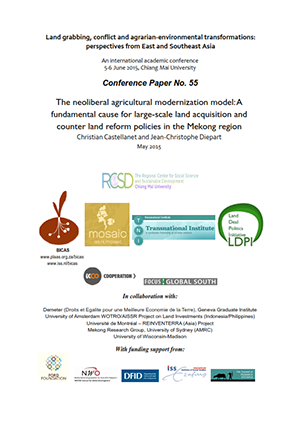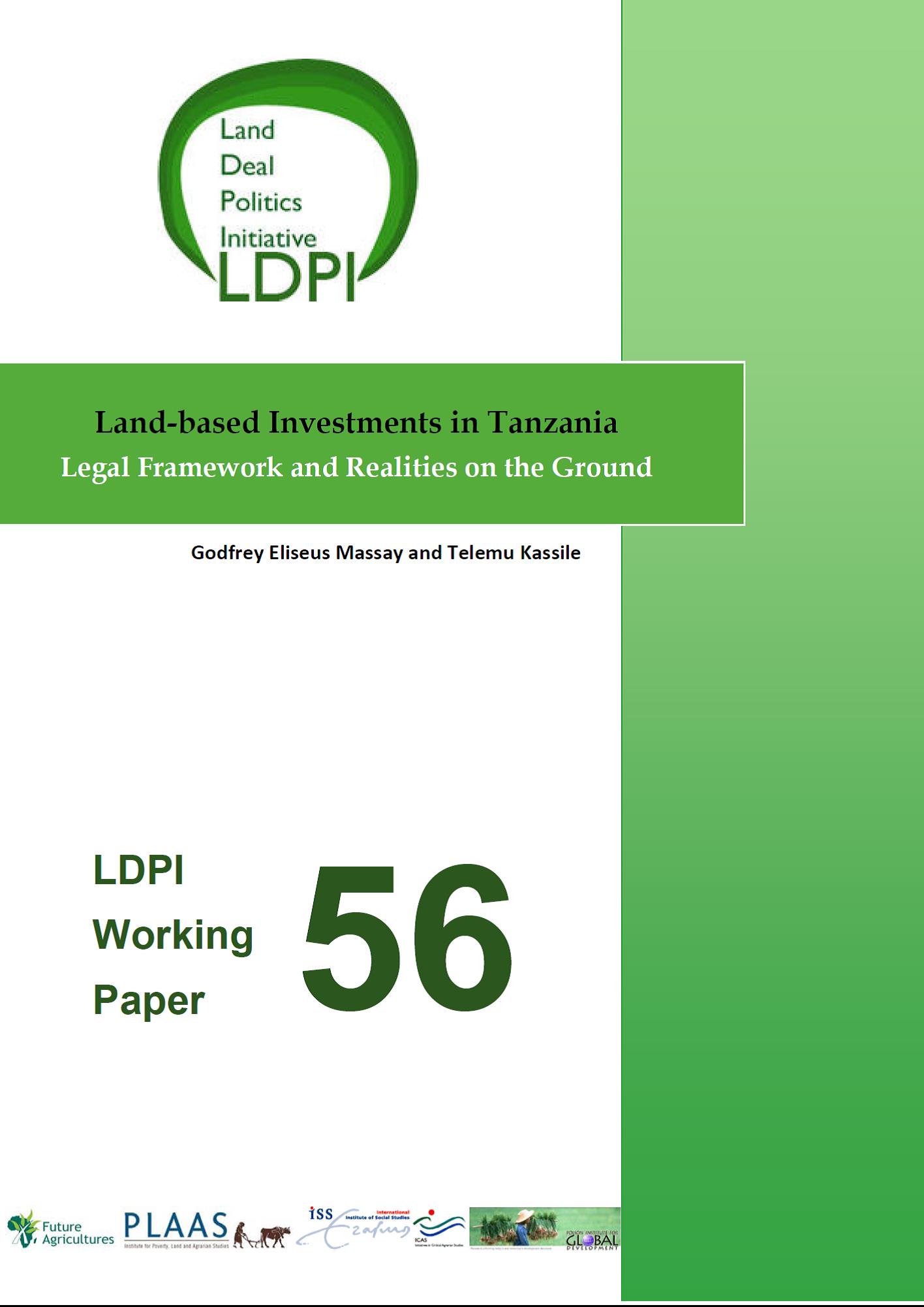Location
The Land Deal Politics Initiative (LDPI) is a network of the research programme of Political Economy of Resources, Environment and Population (PER) of the International Institute of Social Studies in The Hague, Part of Erasmus University Rotterdam.
The aim of LDPI is for a broad framework encompassing the political economy, political ecology and political sociology of land deals.
Our general framework is based on answering 6 key questions:
- Who owns what?
- Who does what?
- Who gets what?
- What do they do with their surplus wealth?
- Ho do social classes and groups in society and within the state interact with each other?
- How do changes in politics get shaped by dynamic ecologies and vice versa?
First steps will involve data-gathering through literature reviews, followed by research into more targeted national contexts. This will help us understand a broader set of 'so what' questions.
Members:
Resources
Displaying 11 - 15 of 27The Neoliberal Agricultural Modernization Model: A Fundamental Cause for Large-Scale Land Acquisition and Counter Land Reform Policies in the Mekong Region
This conference paper examines how the ideology and programmatic set of policies coined in the term ‘neoliberal modernization’ applies to agriculture and practices in the Mekong region.
Land-based Investments in Tanzania
Beginning in the mid-1970s through to the 1980s, Tanzania experienced a severe socio-economic crisis. In an attempt to turn things around the abating economy and accelerate economic growth, the government embarked on a broad range of radical policy, legislation, and institution reforms, which opened doors for foreign direct investments (FDIs) and further initiatives have been taken to create an enabling environment for investments to flourish in the country.
Foreign land deals in Tanzania – An update and a critical view on the challenges of data (re)production
Includes the challenges of data collection on foreign land deals in Tanzania and flaws in the documentation and reproduction of data. Concludes that the number of non-transparent projects remains high. Many biofuels deals announced in 2005-8 have failed to materialise. Hope this study will make a contribution to a transparent basis for much needed policy debates and decisions.
Creating a Zambian Breadbasket: “Land Grabs” and foreign investments in agriculture in Mkushi District, Zambia
Includes an ethnography and the cultural economy of land grabs in Zambia and the role of foreign investments in Zambia. Examines the Chayton investment in Mkushi District and asks who does Chayton feed?
“I Would Rather Have My Land Back”. Subaltern Voices and Corporate/State Land Grab in the Save Valley
Includes the land deal and competing land claims, socio-historical context, corporate responsibility or corporate displacement?, Mangoma and “angry villagers”. The case study of Chisumbanje, Zimbabwe, shows how ambiguous land rights emerge historically, particularly over state land, and that these long-running ambiguities come to the fore when land deals are struck. Issues that have lain dormant for decades become the focus for intense contests, which become captured by contemporary interest groups.




